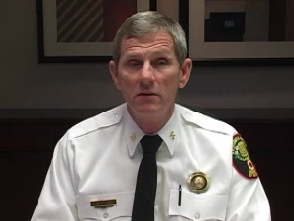
Mass Casualty Incident Triage
Course Description:
This course is intended for pre-hospital care providers who may be called on to respond to a mass casualty incident resulting when a large numbers of victims are injured or exposed to hazardous materials or WMD agents. The course will prepare trainees to use the Simple Triage and Rapid Treatment (START) system, along with the "All Hazards" or "All Risk" Triage Tag. The course will also cover use of the Incident Management System (IMS) to respond with maximum effectiveness to a mass casualty event. Previous training of trainees may range from Medical First Responder or EMT-Basic to Paramedic.
Target Audience
Academic Faculty/Staff, Federal Government Employees, State Government Employees, Local Government Employees, Non-Government Employees and Students
Learning Objectives
- Define a Mass Casualty event involving WMD and/ or trauma agents and develop an incident action plan
- Identify the ten most common problems with MCI management
- Develop a needs assessment strategy for the emergency transportation of the injured for a MCI
- Identify and describe the requirements of the National Incident Management System, recognize how to establish a unified command at a Mass Casualty incident, and identify the major functions and components of an incident command system
- Describe and perform the functions of the triage using the START system and be able to recognize a variety of triage tags and equipment
- Recognize the difference in procedures and environmental concerns between technical decontamination and medical mass decontamination
- Execute the appropriate responsibilities in response to a mass casualty incident
- Identify and establish the medical sectors and safety zones at a MCI
Instructor:

Battalion Chief Sam Hansen, EFO, EMT-P, CET, CFOD
Battalion Chief Sam Hansen, Vestavia Hills Fire Department, has over 30 years experience in the fire service, specializing in both rescue operations and command. Since 1996 Chief Hansen has worked as an adjunct instructor for UAB’s Center for Labor and Education Workplace Safety Training Program (CLEAR). His teaching specialty areas include: Hazardous Materials Emergency Response, Incident Management System, Confined Space Entry & Rescue, Weapons of Mass Destruction, Radiological and Nuclear Awareness.
Chief Hansen is a certified Fire Battalion Chief, Executive Fire Officer, Advanced Cardiac Life Support Instructor, Licensed Paramedic, Community Emergency Response Team Instructor (CERT), Confined Space Rescue Technician, Hazardous Materials Technician, and Structural Collapse Technician.
Available Credit
- 4.00 Participation/CETulane Professional and Continuing Education (PaCE) awards 4.00 hour(s) of credit for completing Mass Casualty Incident Triage
Price
Required Hardware/software
System Settings
This course is designed to work most effectively if your computer and internet connection meet certain minimal requirements. This course can be accessed using a Windows 10 PC or a Mac with High Sierra1, Mojave, or Catalina. Pop-up blockers should be disabled when viewing the course. Internet Explorer 11 (for Windows 10), or the current version of Google Chrome, Mozilla Firefox, or Apple Safari (for Windows 10 and or Mac) is required. Many of our courses require Java and JavaScript enabled.
Links to External Websites
Links to websites outside this course will open in a new window or tab. Some browsers may minimize the course window. If this occurs, maximize the course window to return to the course.
Adobe Acrobat Reader (for desktops and laptops)
Adobe Acrobat Reader is required to access some documents in this course. If you need to download a free copy of Acrobat Reader, click here.
Internet Connection Speed
A minimum download speed of 1.5 Mbps is recommended for an optimal experience, which is commonly the speed associated with a basic DSL or a cellular/satellite connection. A faster connection, such as cable or fiber service, with further enhance your online experience. A Wi-Fi connection is generally acceptable, but it is dependent upon one of the two services mentioned above. You can check your internet connection speed at http://www.speedtest.net/.

 Facebook
Facebook X
X LinkedIn
LinkedIn Forward
Forward